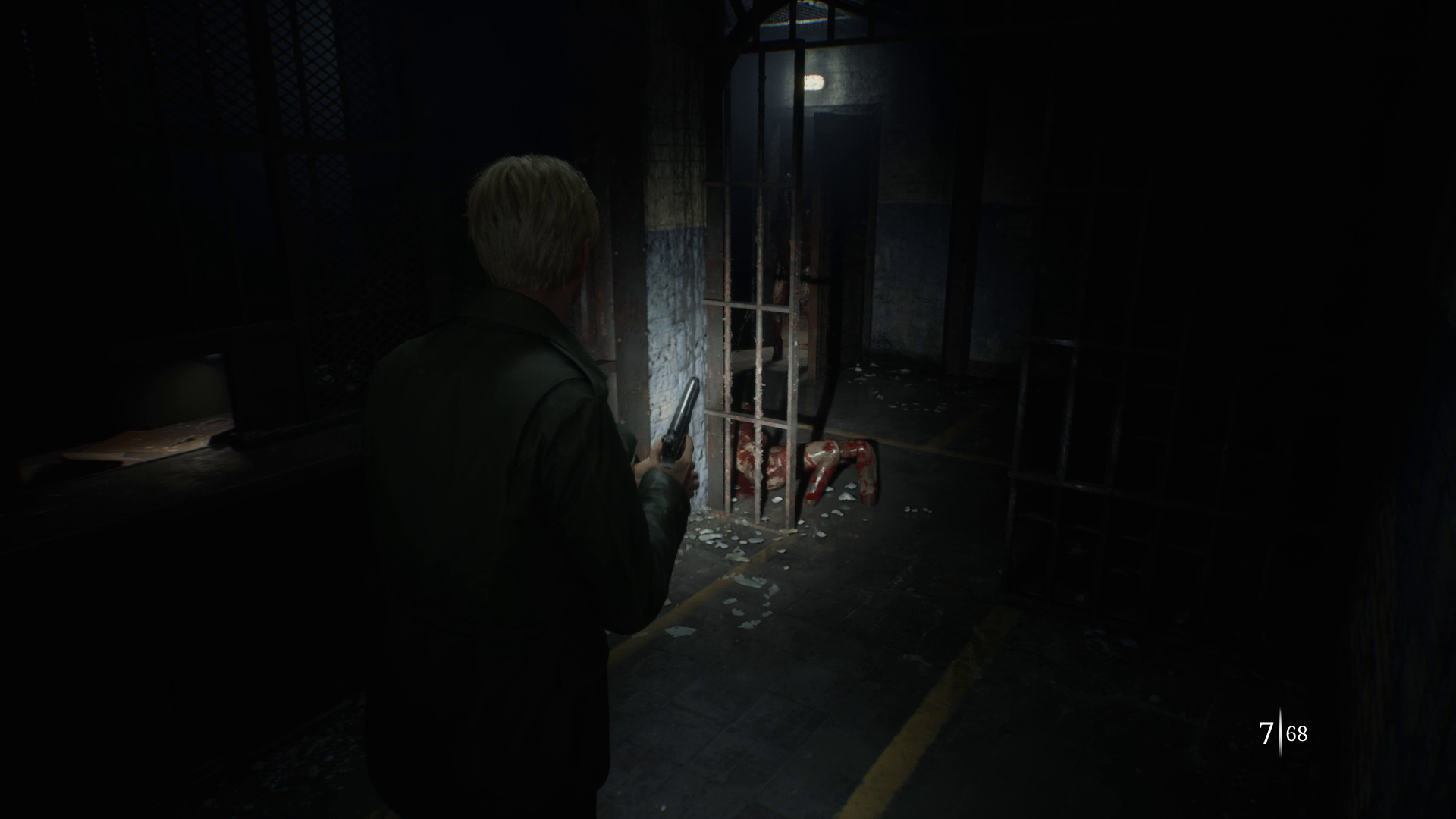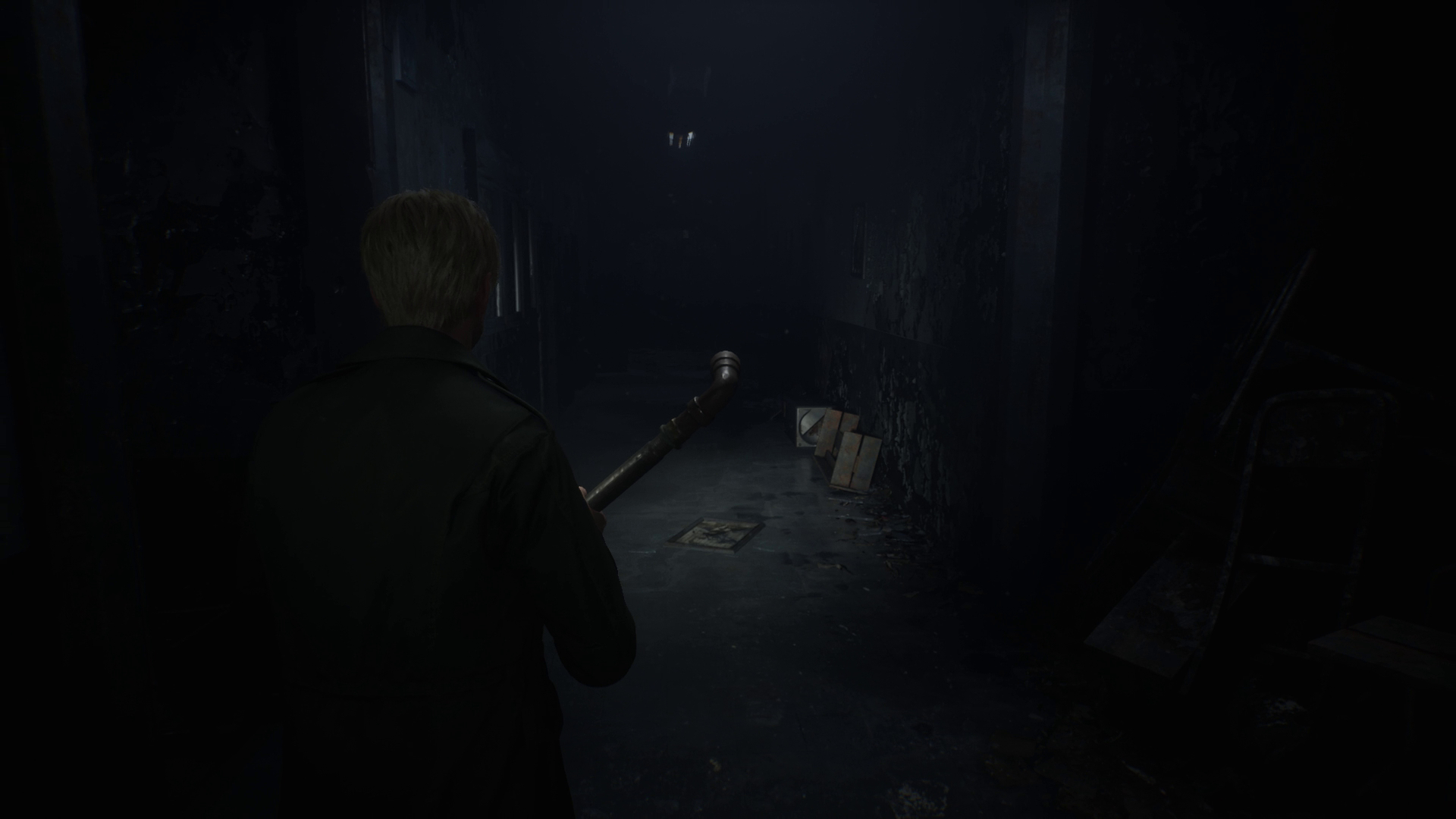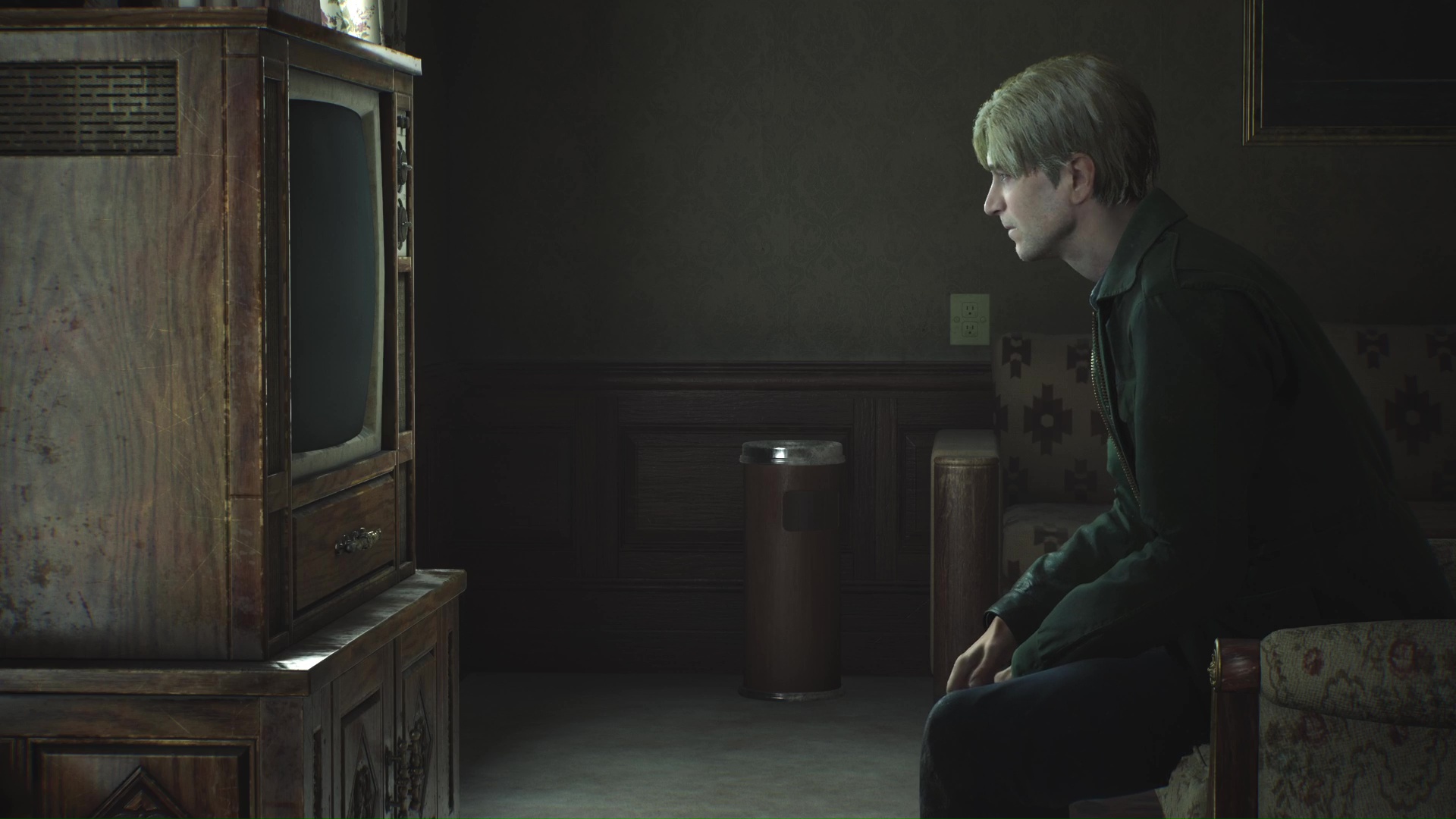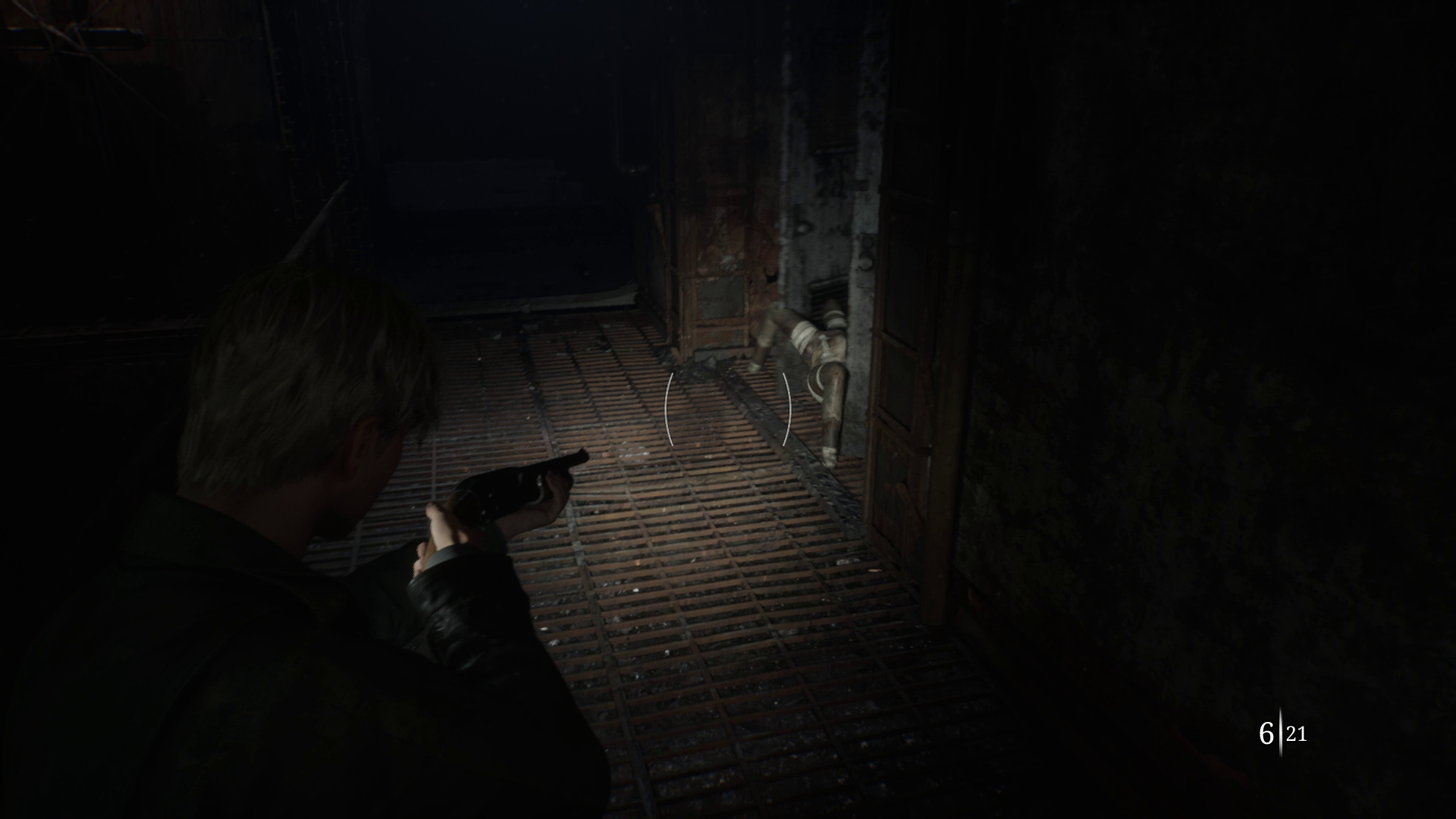Why Silent Hill 2 Remake's Toluca Prison is even more terrifying than the original
Opinion | Explore an "other" world within the Otherworld

The world of Silent Hill is a weird, liminal place. Here, the threshold between the unsettling dream of the fog world and the industrial hell of the Otherworld can be as tenuous as crossing a small gap to a neighboring building, or a shift in mental state. Yet even within this existing framework of weirdness, Silent Hill 2's Toluca Prison stands out as an anomaly, your journey to it taking you down a seemingly neverending staircase and a succession of holes that make it feel like it exists beyond the usual two Silent Hill realities. While its whereabouts in Silent Hill's psychosphere are up for debate, it feels like a sub-dimension where James' conscience and a harrowing part of Silent Hill's history bubble together in a dark brine deep in the bowels of the Otherworld – or even beneath it.
Once a POW camp for Civil War soldiers, then a correctional facility with a habit for executions and disposing of corpses in deep holes, Toluca is saturated with bad memories. Fittingly for the spooky season – and faithfully to Team Silent's original rendition – Toluca Prison is the point at which Silent Hill's dimensional spectrum ventures towards the spectral, with Bloober retaining the little touches that made the prison feel haunted (by forces other than James' own guilt and horniness, that is). Long-dead prisoners whisper in clammy cells, invisible horses can be heard trotting to take prisoners to the gallows, and a scream from beyond the grave – a shameless jump-scare made all the more effective by the fact that the game contains so few of them – await those descend into Toluca.
Hell in a cell


Silent Hill 2 Remake review: "An atmospheric and rewarding horror game up there with the Resident Evil remakes for reinventing a classic"
Bloober's rendition also takes a few departures from the design of the original Silent Hill 2, which used a tight, top-down perspective that made it hard to see the scuttlers and other creatures coming your way. With the limited control that we had over the camera in Silent Hill 2, we were often at the mercy of Team Silent's creative cinematography, which it deftly exploited to claustrophobic effect. Even now, there's definitely some weight to the contention that a fully controllable all-angles camera is an aspect of modern game design that's anathema to effective horror. To counter this, Bloober exploited an aspect of modern game design that was notably lacking back in the days of the original: verticality.
Instead of looking downwards in Silent Hill 2 Remake's Toluca, your attention is turned upwards this time. At first you just hear something moving up above you, but when you look up, you see nothing but dim lights dangling by cords that disappear into the darkness. As you try to get your bearings while radio static signals threats you can't yet see, you get some respite when you find a lever that switches on all the lights in the cell block. But that relief is short-lived when you realize that these lights are on a timer, which audibly ticks down faster and faster until you are plunged into near-total darkness once more. In the end, the precious seconds I'd spend pulling the lever, compounded by that dreaded countdown, would slather on so much tension that I'd opt to just sprint through the darkness rather than burden myself with the additional stressors.
Eventually, maybe as the ticking lights start to sputter, you see them: the deadly new threats that have been stalking you. They are in fact a new form of an existing enemy, the Mannequin – four prosthetic legs adjoined by a torso, essentially. Utilized up to this point in the game as hidey-seeky purveyors of jump-scares tottering around on two gainly legs, Toluca gives the Mannequins a horrifying refresh just as their original form might have started to grow overly familiar. This variant scurries along walls and ceilings on all fours, like cockroaches skittering in and out of ceiling vents in a damp motel room, before leaping at you from all angles.

Once this insectile new form of the Mannequin catches your scent, it's as if it sends a signal to the others, because they all seem to descend on you at once. Within moments, you're blasting them off the walls with your shotgun while straight-jacketed Lying Figures spit venom at you from their cells. In these moments, Silent Hill 2 Remake's horror veers into Resident Evil 4 territory, as you're besieged from all sides and – for the first time in the game – are anxiously watching your ammo supplies dwindle. This gear-shift towards a noisier, swarming kind of horror is a creative liberty on Bloober's part, but it works precisely because it's an outlier to the rest of the experience. It also fits thematically with a setting that's steeped in violence, as you try to traverse what feels like an otherworldly prison riot. You can't possibly quell it, you can only hope to survive it.
Even in the quieter moments wading through Toluca, the protracted industrial notes of Akira Yamaoka's score reverberate through and grind down your psyche (you know you're in a bad place where the only relief from the barrage of noise and monsters comes by standing in a pitch-black execution yard). At one point, you pick up a paranoid note from one of the prisoners claiming that another prisoner can get to him through the walls. When you get to this prisoner's cell, you find that they've created a hole in the wall through which to escape, and as you squeeze yourself through this escape route, that note about the prisoner stalking others through the walls lingers in your mind.
Sign up to the GamesRadar+ Newsletter
Weekly digests, tales from the communities you love, and more
Maybe Toluca is a reflection of James' repressed conscience reaching breaking point, tearing to get out, or maybe there really is some kind of paranormal activity here. The beauty of Bloober's remake is that it retains the mystery surrounding this forsaken place, while adding a few astute elements that elevate it into one of the most stress-inducing horror sequences you (or James Sunderland) could imagine.
Rob is a freelance games journalist, SEO and content manager. He's written for PC Gamer, GamesRadar, Kotaku, Rock Paper Shotgun, WhatCulture, NextPit, PCGamesN, VG247, Eurogamer, TechRadar, and more.


